Friday, November 30, 2018
Thursday, November 29, 2018
Wednesday, November 28, 2018
The Great Molar Bear Tour of 2018

As wrap up my final visits at ASDA chapters and make my way back to ASDA’s central office in Chicago, I reflect on my Advocacy Month 2018 adventures. I’m happy to report that I surpassed my 2017 mileage and reached 61 of ASDA’s 66 chapters — a substantial increase from the 53 chapters I visited last year. After all of the travel (with minor jet lag) and hours spent with ASDA members, I am certain of three things: Advocacy is vital to ensure the future of the dental profession, the profession is safe in the hands of the advocates I met this month, and ASDA members are excellent hosts. Here are some of my favorite highlights from the 2018 tour.
Midterms Matter: Add your voice
Advocacy Month was appropriately themed “Midterms Matter: Add your voice,” in light of the Nov. 6 election. ASDA members across the country made sure their fellow students went to the polls to represent the dental profession. It was an especially exciting election season since five dentists were elected to Congress. Here are two quick snapshots of the election for the photo log:

Buffalo students had plenty of Election Day excitement. Abdullah Al Qaraghuli, Buffalo ’21, (center) even won ASDA’s “Why I Am a Dental Voter” contest.

Harvard students were gracious enough to help me cast my vote while I visited them.
Find out. Reach out. Speak out.
ASDA members certainly got out the vote during this election season. However, I was even more impressed by their efforts to gain a thorough understanding of the issues affecting their profession and their eagerness to become life-long dental advocates. Chapters held lunch and learns on advocacy topics and hosted politicians to speak on the issues. It’s difficult to highlight only a few chapters that undertook these important events, but here are a few that come to mind:

I had a wonderful time at Oklahoma’s Pizza and Politics event (even though the pizza wasn’t Chicago-style). It was fascinating to learn about the specific issues affecting their state from the lobbyist students invited.

In-between their Advocacy Academy, ADPAC drives and a legislative kickoff, students at Texas A&M made room in their schedules to show me around their lab.

South Carolina was kind enough to invite me to their first-ever advocacy social event. They had dentists speak about staying involved with advocacy and the ADA Dentist and Student Lobby Day.
Molar Bear Signing Off
It’s about time for me to settle down for my long respite in Chicago, but my hibernation schedule won’t keep me from the 2019 ADA Dentist and Student Lobby Day April 14-16, 2019, in Washington, D.C. I hope to see you there!
Until then, I look forward to dreams of alleviating dental student debt and advocating for licensure reform. I will rest knowing that ASDA members’ advocacy efforts persist, even in my absence, to improve the profession for the patients you serve.
See you soon.

~Molar Bear
Tuesday, November 27, 2018
Will you be an employee or an independent contractor?

When you leave dental school and head out into the world, it’s likely that you will consider joining an existing practice. Whether you hire or are hired, you will likely sign an employment contract. An employment contract is an agreement under which a dentist commits to perform certain services and a practice agrees to compensate that dentist for performing those services.
In general, the relationship between a dentist and a practice falls into one of two categories: employee or independent contractor. The distinction between the two is important, and not understanding the difference could lead to unintended legal consequences.
Who is an employee?
An employee follows an employer’s directions and supervision as to what and how work is to be performed, such as:
- When and where to work
- What order or sequence to follow when performing the work
- How to procure supplies and equipment
- What workers to hire or assist with the work
In general, the employer controls the details (such as the “when” and the “how”) of the employee’s service. A practice may wish to hire an employee if he or she desires to establish this type of (generally longer term) relationship and to maintain greater control over how and when work is to be performed.
Who is an independent contractor?
An independent contractor is a self-employed professional who exercises independent judgment and renders services as specified in a contract. The independent contractor is able to control the means and methods by which the work is performed, while the practice is able to direct what work is to be performed but does not control when and how the result is accomplished. The independent contractor generally has greater control than an employee over the following factors:
- Working hours
- Fees
- Personal work routines
- Appointment-book control
- Treatment and planning
A practice may wish to engage an independent contractor if it requires a specialized expert for a particular area of dentistry, to replace an employee on vacation or leave, or to increase the utilization of the dental office facility.
What are the ramifications?
Be aware that whether a dentist is identified in an employment agreement as an independent contractor or an employee is of less significance than his or her actual working relationship with the hiring agent, which is what the government will look at if legal consequences arise. Unless that relationship meets the legal standards for an independent contractor, such characterization (and treatment) should be avoided. Often, when a hiring relationship is mischaracterized, it is because the employer preferred to characterize someone who works under employee conditions as an independent contractor.
The ADA publication “Dentist Employment Agreements: A Guide to Key Legal Provisions” explains many of the terms and provisions common to dental employment agreements, including the distinction between employees and independent contractors. An ADA video is also available to help you understand the difference between employees and independent contractors.
Note: ADA materials, including this blog post, are not intended to offer legal or professional advice or opinions. To get appropriate legal or professional advice, you must consult directly with a properly qualified attorney admitted to practice in your jurisdiction.
This content is sponsored and does not necessarily reflect the views of ASDA.
Monday, November 26, 2018
ASDA’s Editorial Board shares what they are thankful for

As Thanksgiving break comes to an end and we transition back to school “cold turkey,” it is time to reflect on what we are thankful for this year. Whether it is for leftover stuffing and pecan pie or the gratitude of getting to spend time with close family and friends, ASDA’s Editorial Board would like to share with you what they are thankful for.

Lana Khazma, Texas A&M ’20, Electronic Editor
This year, there are so many things to be thankful for. As a third-year dental student now, I am thankful for all the new things I’ve learned so far in clinic. I am thankful for my dental school, which has made the past few years both stressful and enjoyable, and has truly lived up to the quote “pressure makes diamonds.” I am thankful for my ASDA family on the chapter, district and national levels. ASDA has enriched my dental school experience and given me opportunities that I did not know were possible. But above all, I am thankful for my supportive family and friends who have made everything I have accomplished possible.

Jeannie Binder, Texas-Houston ’21, Contributing Editor
As I’m approaching the midway point of my dental school career, I’m thankful for all the opportunities I’ve had to enrich my life beyond the walls of the dental school. In undergrad, I had a world literature professor who gave us some memorable advice that had been passed down to him by one of his own professors: “Glorify your lives.” When you have the opportunity to go to a concert, try a new hobby, meet up with friends or even just read a book, take it. Embrace the things that make you you, and actively seek out meaningful experiences.
For me, that means going to Houston Symphony concerts or opera performances to reconnect with my previous life as a musicologist. It means watching hours upon hours of “The Great British Baking Show” and attempting to make the perfect puff pastry. It means making it to the pool a few times a week and convincing myself that jumping in Lake Michigan at next year’s NLC is a good idea. And beyond this, I’m incredibly thankful for all the people I can share these experiences with. My family, the lifelong friends I’ve made in dental school and on the editorial board, and all of the readers I’ve been able to connect with — if only just virtually — through this position on the editorial board. Thank you to each and every one of you for glorifying my life.

Angela Walter, Temple ’20, Contributing Editor
I am most thankful for my incredible parents who have paved the way for me to take leaps and bounds in my career, in my relationships and in my spiritual walk with God. I am so thankful I not only get to call them my heroes but my best friends. I am thankful that I have learned how to persevere, have faith in the darkest moments, and always have true joy and laughter in the most adverse of circumstances. They have taught me how to be a champion, a friend and a woman of God. They taught me I could do anything because of the way they look at me. They believe in every dream I have, as if it is their own. I am eternally grateful to my daddy and my momma.

Alexandra Nash, Southern Illinois ’21, Contributing Editor
Among many blessings this year, I’m thankful for my fluffy companion, Gizmo the cat. Always greeting me when I come through the door, this feline friend makes the stresses of life melt away with his warm snuggles and soft purrs. Being only a couple years old, his playful spirit keeps me active and laughing, even when it’s dreary out. Here’s to all the loving pets out there, cats and dogs, who know how to turn a day around and make their owner feel special and loved.

Isabel Pennings, Creighton ’20, Contributing Editor
I am thankful for so many things, but especially for friends who feel like family. They say that friends are the family you choose, and I could not be more blessed to be surrounded by such fantastic people here in dental school. Thank you to my friends at Creighton Dental for making the past stressful years also some of the best! As always, I’m also thankful to be on the right side of the Thanksgiving meal. Sorry, ya turkeys.

Morgan Rebeck, Tennessee ’19, Contributing Editor
This year and every year, I am thankful for the support of my family and friends. I would not have gotten to where I am today without their encouragement, love and positivity. Knowing that I have a strong support system has allowed me to reach levels in leadership that I did not think would be possible and has allowed me to pursue dreams that I thought were unattainable. I am truly blessed and excited to be graduating in a few months!

David Danesh, Harvard ’20, Editor-in-Chief
I’m thankful for the family and friends who always support me. I am thankful for the friendships and experiences I have through ASDA, too. I love ASDA, and the friendships I’ve made have helped me get through dental school. Sometimes, the grind of dental school make me forgot how much I rely on people who care for me. Thanksgiving reminds me just how thankful I am for them, and inspires me to be just as thankful for the other 364 days of the year.

Vrinda Shah, Florida ’21, Electronic Editor
This year I am thankful for both old and growing relationships and experiences. Dental School has been a fun and challenging experience all in one, yet amongst all the craziness I am blessed with new opportunities like serving on this wonderful editorial board, making new friends at ASDA conferences, and starting my Latin dance journey through salsa and bachata. Each of these has helped me learn a little more about myself while travelling and making new friendships. Every day is a little different, and there is something new to learn. I couldn’t be more grateful for such opportunities and to be surrounded by the most caring friends, family, and colleagues.
And let’s not forget a big thank-you to you for your support in our publications, Contour magazine and this blog, Mouthing Off. We hope everyone had a relaxing break and are returning to school ready to hit the ground running.
Wednesday, November 21, 2018
Understanding dentistry’s role in combating opioid abuse

There is no shortage of news, facts or statistics on the opioid epidemic. As a dental student, you’ve probably been inundated with this information. ASDA’s Council on Advocacy wants to help you make sense of the crisis and the ways you can advocate for your patients.
The council held an expert panel to assess the epidemic through the dental profession lens. Perspectives on organized dentistry, interprofessional efforts and legislative actions were discussed to help students understand the issue. Here are the key takeaways you should know as you begin to combat the opioid epidemic.
The role of dentistry
The U.S. Department of Health and Human Services reports that opioid overdoses contributed to more than 42,000 deaths in 2016. Many of these overdoses involved prescribed drugs. Dentists aren’t the No. 1 prescriber of opioids in the United States, but according to Drs. Sharon Parsons, vice president of the Ohio Dental Association, and David Anderson, director of oral and maxillofacial surgery at Roseman University of Health Sciences College of Dental Medicine, dentists have been part of the problem.
First-time exposure to opioids oftentimes happens after wisdom tooth removal. This places young patients at risk because they are more likely to become addicted when exposed to opioids, as their prefrontal cortex is still forming. Dr. Parsons implored dental students to internalize this fact and to consider alternatives to opioids such as ibuprofen and acetaminophen for acute pain management.
Organizational efforts
In addition to opioid alternatives, profession-wide measures such as mandatory continuing education and prescribing limits are necessary to stymie the epidemic. Dr. Parsons shared that in October 2018, the ADA House of Delegates formally adopted an interim policy advocating for these changes. This made the ADA one of the first professional health organizations to develop this kind of policy.
The American Association of Oral and Maxillofacial Surgeons (AAOMS) has also taken a stand against opioids. Dr. Anderson highlighted white papers the organization created on prescription drug abuse and prevention. In addition to CE and prescribing limits, the specialty organization recommends prescription drug monitoring programs. These programs require dentists to check a patient database to ensure the patient hasn’t recently received a prescription from another health care provider.
Organizational policy statements and white papers have created evidence-based measures to address the issue. Legislation at the state and federal levels also is needed to bolster prevention efforts and to provide aid to patients already suffering from addiction.
Legislative change
Dr. Richard D’Innocenzo, clinical professor and director of pre-doctoral education in the Department of Oral & Maxillofacial Surgery at Boston University Henry M. Goldman School of Dental Medicine, highlighted state-level measures to prevent prescription misuse. Massachusetts passed legislation in 2016 creating a prescription monitoring program and setting limits on initial opioid prescriptions for adults and minors. Addiction education also became a requirement for parents of minors receiving opioids. The CARE Act of 2018 enhanced these measures by requiring all prescribers to use secure electronic prescriptions for controlled substances and creating a commission to create recommendations on appropriate prescribing practices in dentistry.
Measures to reduce the number of opioids available to patients, create prescribing standards and promote patient education are being discussed at the federal level. In 2018 alone, more than 140 pieces of opioid legislation were considered by Congress. The Support for Patients and Communities Act was adopted in October. Due, in part, to the efforts of the 2018 ADA Dentist and Student Lobby Day, principles supported by the dental profession were included in the bill. These included funding for research into the best pain management practices with minimal opioid use and resources for states to enhance prescription drug monitoring programs.
State and federal legislation on opioid prescribing will continue to be discussed and enacted. As a dental professional who may prescribe opioids, you need to know about opioid addiction, to practice responsibly and to advocate for initiatives that combat the issue. Dedicate one hour of your day to watch the panel to advance your understanding of the issue.
~ASDA
Tuesday, November 20, 2018
UB Dental shares ‘fun and games’ with local geriatric residents

Recently, the Buffalo chapter of ASDA hosted a session of “Fun and Games with UB Dental” at our local nursing home, Elderwood. We chose to volunteer with this population because we often see that geriatric individuals are underserved when it comes to oral hygiene knowledge as well as access to oral hygiene supplies.
In small groups, we reviewed how they should be caring for their natural dentition/removable appliances and how to use some of the products we provided in goodie bags: toothpaste, a toothbrush, denture adhesive and cleanser. We continued the afternoon eating cake and playing bingo. During the game, we gave out prizes we had purchased that they typically don’t have the chance to win at their weekly bingo games. At the end of the day, everyone left with their own custom-made vase of fresh flowers to keep in their rooms. We all had a great time, and the residents were happy to find out “Fun and Games with UB Dental” wasn’t all about teeth.
Our chapter has always been involved with Elderwood, and since we received the Colgate “Dentistry in the Community” grant, we thought it would be great to do something for the geriatric community. One challenge we realized upon getting to the nursing home was that everyone living there had different dental, physical, and mental needs and abilities. Rather than giving a group presentation like we initially planned, we split up into small groups to have these dental talks with the residents. This allowed us to make the experience a little more personal for everyone and gave us the opportunity to address more specific needs of each resident.

Personally, I had a great time at this event. I saw how happy the residents were throughout the afternoon, and a lot of them approached me throughout the event to tell me how grateful they were for having UB Dental there.
After this event, I better understand that a lot of the things we take for granted when it comes to access to care can be a problem for others, including those in the geriatric population. It is extremely important to continue outreach with this community. A lot of them have no transportation to a dental clinic, which means their dental needs are being neglected. Outreach events such as this one are a great way to bring some awareness to the importance of oral health. For some, this may be their only form of access to dental care.
If you’d like to start your own outreach project with the geriatric population, keep in mind that everyone is unique. Everyone has their own mental, physical and dental needs, so you have to find a way to individualize care. Not everyone fits into a mold and should be treated the same way. Also, communication with the geriatric community may pose some challenges. Sometimes, repetition and demonstrations are the best ways to educate them about the importance of oral hygiene.

This event has helped me understand that achieving proper oral health is multifactorial. There are many barriers to care that exist for geriatric patients that must be overcome. The patient is not always the one to blame for poor oral hygiene. Physically, some of them may not be able to perform proper dental hygiene, and so they rely on caretakers to do so. As health care providers, we should do a better job of educating not just the geriatric population but also their family members and caretakers. Then, we will begin to see improvements in our patients’ oral health, which will hopefully translate to better general health.
We are grateful to Colgate for sponsoring products for us to hand out during the event. The residents were astounded by the generous amount of toothbrushes and toothpaste given. Without Colgate’s sponsorship, we would not have been able to successfully implement this outreach event.
~Yuhan Sun, Buffalo ’20
ASDA thanks Colgate for their exclusive sponsorship of the National Outreach Initiative. This backing includes funding for the Dentistry in the Community Grant and free oral health care supplies to any chapter that requests them.
This content is sponsored and does not necessarily reflect the views of ASDA.
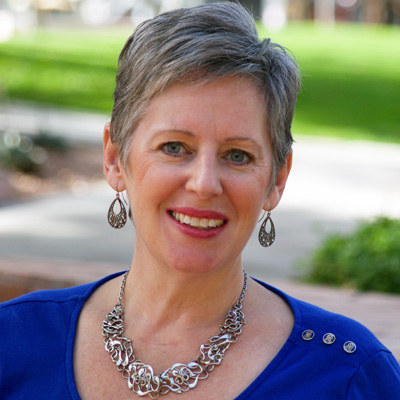 Stress can manifest itself in many ways, writes practice management consultant Jen Butler. She analyzes some of these manifestations for dentists and hygienists and offers some possible solutions for finding ways to reduce everyone's stress levels.
Stress can manifest itself in many ways, writes practice management consultant Jen Butler. She analyzes some of these manifestations for dentists and hygienists and offers some possible solutions for finding ways to reduce everyone's stress levels. If your practice's revenue has plateaued in recent years, you are likely looking for new means of increasing revenue. In his latest monthly column based on the most thought-provoking topics from the Dental Business Study Clubs, Dr. Roger P. Levin offers five practical ideas to do just that.
If your practice's revenue has plateaued in recent years, you are likely looking for new means of increasing revenue. In his latest monthly column based on the most thought-provoking topics from the Dental Business Study Clubs, Dr. Roger P. Levin offers five practical ideas to do just that.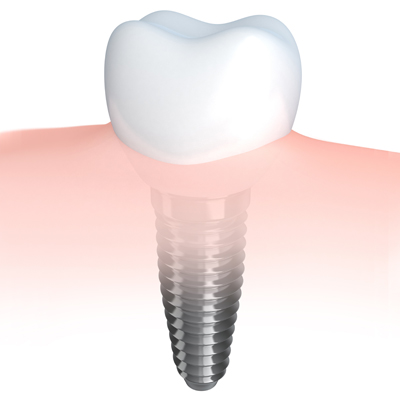 How well do narrow-diameter implants perform compared with regular-diameter ones? Are crestal bone loss and survival rates similar? Since research is limited and contradictory in this area, one investigator performed a systematic review and meta-analysis to learn more.
How well do narrow-diameter implants perform compared with regular-diameter ones? Are crestal bone loss and survival rates similar? Since research is limited and contradictory in this area, one investigator performed a systematic review and meta-analysis to learn more.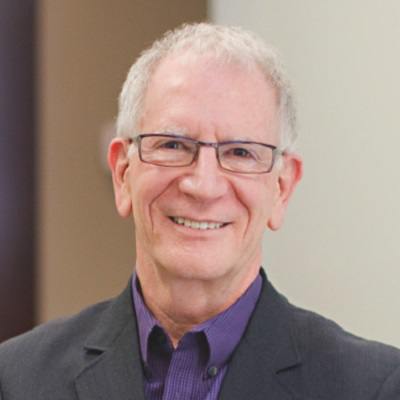 Dr. Alvin Danenberg announced to his blog readers in September that he'd been diagnosed with multiple myeloma. In this column, he raises questions every dental team member should ask themselves about the health risks they may face while serving their patients and their community.
Dr. Alvin Danenberg announced to his blog readers in September that he'd been diagnosed with multiple myeloma. In this column, he raises questions every dental team member should ask themselves about the health risks they may face while serving their patients and their community. Although teen tobacco use is on the rise, the number of U.S. adults who smoke cigarettes has reached a record low, according to new data from the Centers for Disease Control and Prevention (CDC). However, about 1 in 5 U.S. adults still uses tobacco products.
Although teen tobacco use is on the rise, the number of U.S. adults who smoke cigarettes has reached a record low, according to new data from the Centers for Disease Control and Prevention (CDC). However, about 1 in 5 U.S. adults still uses tobacco products.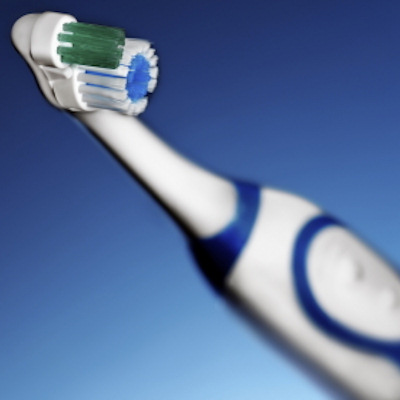 For patients who can't decide between a manual and powered toothbrush, a hybrid design that combines both modes may be ideal. But how effective is such a product at reducing plaque compared with a regular powered toothbrush, and how much do users like it? To learn more, researchers investigated.
For patients who can't decide between a manual and powered toothbrush, a hybrid design that combines both modes may be ideal. But how effective is such a product at reducing plaque compared with a regular powered toothbrush, and how much do users like it? To learn more, researchers investigated.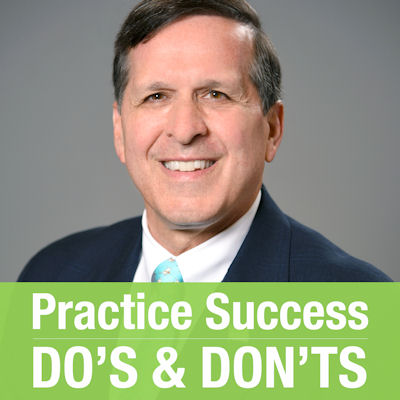 Listening is a difficult skill to master, especially in a busy practice. Listening involves more than just hearing what patients or fellow team members are saying, notes Dr. Roger P. Levin. You also need to be aware of why they're saying it -- and be able to "hear" what they're not saying.
Listening is a difficult skill to master, especially in a busy practice. Listening involves more than just hearing what patients or fellow team members are saying, notes Dr. Roger P. Levin. You also need to be aware of why they're saying it -- and be able to "hear" what they're not saying.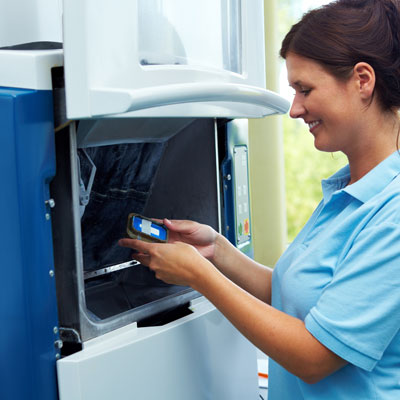 Is a CAD/CAM framework an alternative to a cast framework when restoring an edentulous arch? A new study followed 15 patients with 20 edentulous arches for almost four years to find out.
Is a CAD/CAM framework an alternative to a cast framework when restoring an edentulous arch? A new study followed 15 patients with 20 edentulous arches for almost four years to find out.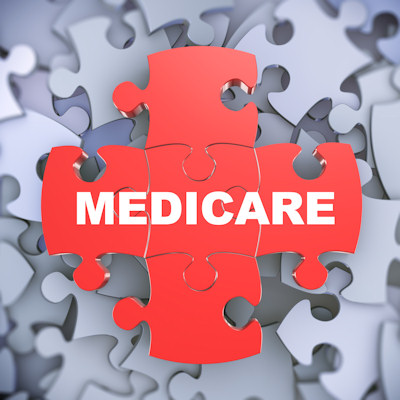 A majority of 20,000 U.S. dentists surveyed support adding dental coverage to Medicare, according to research from the ADA's Health Policy Institute and Oral Health America. The survey findings were presented at the recent American Public Health Association annual meeting.
A majority of 20,000 U.S. dentists surveyed support adding dental coverage to Medicare, according to research from the ADA's Health Policy Institute and Oral Health America. The survey findings were presented at the recent American Public Health Association annual meeting.